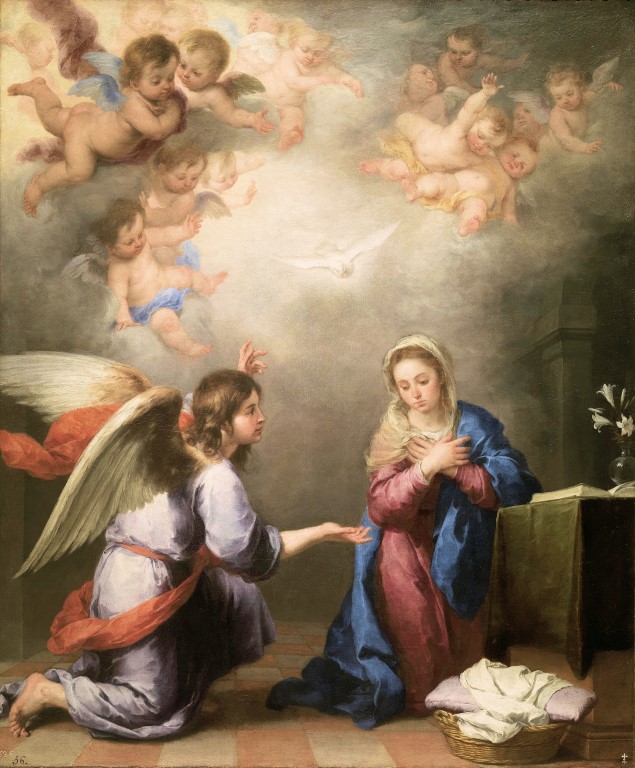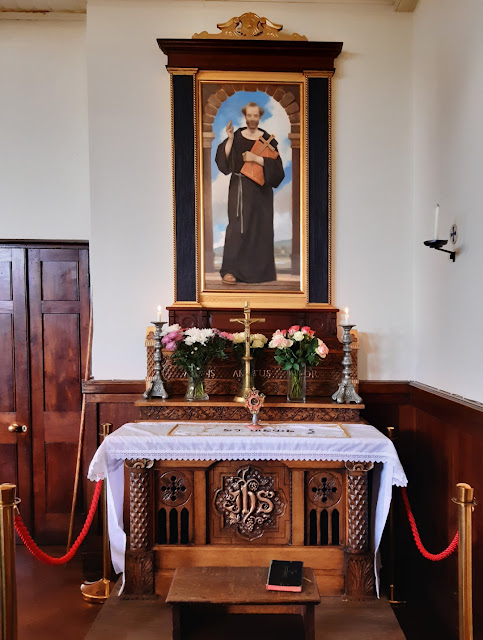How would the old Mass help? II
Ecclesiological
I realise that part I of this essay does not entirely address the question asked by Puella Paschalis – How will the use of the Classical Rite stop abuses? At one level, of course, it will do nothing. Those who are implacably opposed to the old rite will carry on as before, perhaps deriding those parishes that make the old rite available, and finding any excuse to show how unpastoral it all is.
However, the principal effect of liberalising the Classical Rite would be to pass the initiative back to those who are loyal to the Church. At the present time, we have a veritable bibliography of official documents from the Vatican condemning abuses and ordering their cessation. Yet still we have the “Halloween Mass” and any number of lesser abuses perpetuated on a daily basis in parishes throughout the Western Church. In order to counteract these abuses, the faithful must write to the Bishop, or the Nuncio, or to the Congregation for Divine Worship, wait for replies, excuses, and diplomatic manoeuvres, and, in many cases, return unsatisfied.
Were the Classical Rite to be liberalised, the clergy, especially those young and full of zeal for tradition, would be free to take the initiative, without being slurred as disobedient or out of tune with “the mind of the Church”. The very existence of the Classical Rite as one of the family of Western rites, approved and allowed by the Church, would help to dispel some of the scruples and excessive rubricism that afflicts some modern liturgists. You say that good liturgy involves the priest “engaging with the people”? – well here is a liturgy in which the priest does not even raise his eyes above the altar rail when greeting them liturgically: and it is approved by the Holy See. You say that good liturgy involves a committee to choose the texts to ensure active participation? – well here is a liturgy in which the texts are set down, given, received: and it is approved by the Holy See.
General permission for the old rite would have the effect of wiping out many of the “given” principles of liturgical celebration that have plagued the Novus Ordo and hampered the efforts of many good priests in promoting a worthy and dignified celebration of the Mass. Their solemnity, their formality in the rites, their self-effacing attitude to “presiding”, their insistence on observing the rubrics: all of these things would overnight become part and parcel of the whole Western Church’s liturgical patrimony once more. Freedom to celebrate the old rite would have a very encouraging effect on those priests who celebrate the new rite with care.
Then there is the question of the “mixing of rites” which I consider to be a positive thing – but in one direction only. (to be continued)
I realise that part I of this essay does not entirely address the question asked by Puella Paschalis – How will the use of the Classical Rite stop abuses? At one level, of course, it will do nothing. Those who are implacably opposed to the old rite will carry on as before, perhaps deriding those parishes that make the old rite available, and finding any excuse to show how unpastoral it all is.
However, the principal effect of liberalising the Classical Rite would be to pass the initiative back to those who are loyal to the Church. At the present time, we have a veritable bibliography of official documents from the Vatican condemning abuses and ordering their cessation. Yet still we have the “Halloween Mass” and any number of lesser abuses perpetuated on a daily basis in parishes throughout the Western Church. In order to counteract these abuses, the faithful must write to the Bishop, or the Nuncio, or to the Congregation for Divine Worship, wait for replies, excuses, and diplomatic manoeuvres, and, in many cases, return unsatisfied.
Were the Classical Rite to be liberalised, the clergy, especially those young and full of zeal for tradition, would be free to take the initiative, without being slurred as disobedient or out of tune with “the mind of the Church”. The very existence of the Classical Rite as one of the family of Western rites, approved and allowed by the Church, would help to dispel some of the scruples and excessive rubricism that afflicts some modern liturgists. You say that good liturgy involves the priest “engaging with the people”? – well here is a liturgy in which the priest does not even raise his eyes above the altar rail when greeting them liturgically: and it is approved by the Holy See. You say that good liturgy involves a committee to choose the texts to ensure active participation? – well here is a liturgy in which the texts are set down, given, received: and it is approved by the Holy See.
General permission for the old rite would have the effect of wiping out many of the “given” principles of liturgical celebration that have plagued the Novus Ordo and hampered the efforts of many good priests in promoting a worthy and dignified celebration of the Mass. Their solemnity, their formality in the rites, their self-effacing attitude to “presiding”, their insistence on observing the rubrics: all of these things would overnight become part and parcel of the whole Western Church’s liturgical patrimony once more. Freedom to celebrate the old rite would have a very encouraging effect on those priests who celebrate the new rite with care.
Then there is the question of the “mixing of rites” which I consider to be a positive thing – but in one direction only. (to be continued)


